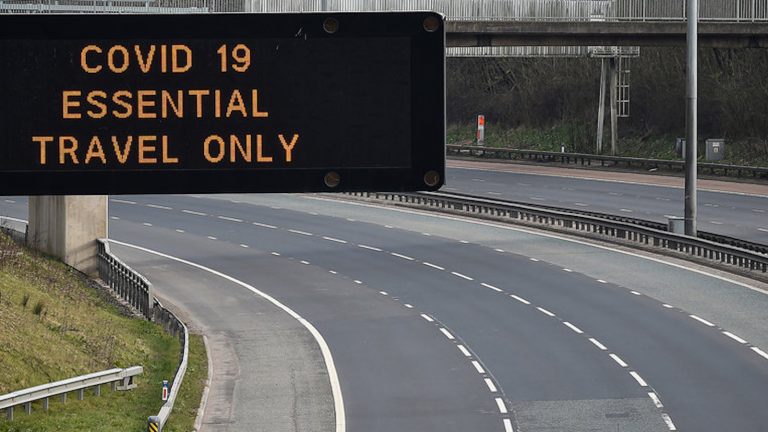As the coronavirus swept the globe, plenty of governments failed to adjust quickly. They tried to manage the numbers and catch up, but they simply weren’t prepared for such a catastrophe. But not all governments failed—plenty of smaller governments are doing just fine. From Southeast Asia to the Faroe Islands, perhaps one of the most important lessons we’ll learn is this: When it comes to a properly-run government—the smaller, the better.
Even before pandemic hit, citizens felt unheard by their federal government. It makes sense. Feds are prone to one-size-fits-all proposals and intrusive, sweeping action that hurts the very people it claims to help—often minority and vulnerable populations.
That’s already set to happen in the COVID-19 response. The NSA is currently seeking to use cellphone location data to “better understand the movements of Americans during the coronavirus pandemic and how they may be affecting the spread of the disease.” But minorities are always more likely to be targeted by these kinds of measures. Why would it possibly be different now?
Of course, all Americans are at some measure of risk, what with the way the federal government has always struggled to appropriately use data in the past. Now, the feds are asking that Americans exchange their information for an uncertain safety. Historically speaking, power given to Washington alphabet agencies doesn’t get returned to the people.
But local administrations are often more in tune with those they serve.
As a result, they’re better able to identify weak points and provide more tailored solutions. For instance, at a time when the federal government was scrambling to catch up to global COVID-19 testing rates, small localities were steps ahead.
In the Faroe Islands, for example, a small, locally-run veterinary lab was re-purposed for COVID-19 testing, free from government intervention. The facility is able to perform 1,000 tests a day if needed. And South Korea flattened the curve by acting quickly to expand testing, unlike the cumbersome lockdown measures currently used in the United States.
Red tape, too, has caused the federal response to be more than lackluster. They’re realizing that, which is why the feds are slashing red tape left and right—but that should have been done already.
But some areas of the world, like Special Economic Zones (SEZs) are faring well without bureaucracy weighing them down. SEZs are geographic spaces found across the world from Allentown, Pennsylvania to Ota, Japan. SEZ’s have different operating rules than the rest of the territory around them, and are intended to give businesses more flexibility with things like investment and trade. Since the early 1950s, these small areas within cities, or entire cities, have been given special tax treatment, or otherwise freed from excessive regulation. During this pandemic, SEZs like the Atchutapuram SEZ in India are successfully manufacturing masks and gowns for hospital workers.
Too, the principle of localized control can help restore jobs, which is desperately needed, as the COVID-19 pandemic is expected to wipe out 195 million jobs worldwide. Shrinking that number will require removing governmental barriers to work.
Thankfully, that’s what’s happening. For instance, occupational licensing laws and restrictions on medical licenses, which provide burdensome barriers to employment, are being relaxed. From Texas to Maine, states are simply getting out of the way and letting health professionals work. But it shouldn’t take a global pandemic for free people to earn a living doing a job for which they’re qualified. Removing occupational and medical service license restrictions should be the standard outside of a pandemic.
If such a regulation can be tossed aside now, it wasn’t necessary to begin with.
Fortunately, organizations like the Charter Cities Institute (CCI) and the Startup Societies Foundation (SSF), are already part of this solution. In the face of this pandemic, they’re helping local and global leaders reimagine governance and make an argument for more localized control. CCI founder Mark Lutter told me that western governments are mired in bureaucracy, unlike some Asian countries who have been able to adapt faster. “Of the countries that have responded most effectively to COVID, three of them are effectively city states: Singapore, Hong Kong, and Taiwan. Local governments are typically more responsive to the needs of their residents, as well as being more flexible in their responses” he said.
We need more nimble, tailored solutions to help us through these difficult times. Our best bet at finding those solutions is when we ease the unnecessary and restrictive burdens on the private sector and free them up to innovate. Let’s make all of America a “special economic zone,” free from excessive regulation. Let’s remove barriers to nurses and doctors treating patients. Bureaucrats just slow things down. But in addressing global crisis, time is of the essence.














[…] This article was originally published on Free The People […]
[…] COVID-19 Proves that Small Government is Better – freethepeople.org/covid-19-proves-that-small-government-is-better/ […]
[…] placed in national news outlets: COVID-19 Proves that Small Government is Better was published in Free the People, and Justin Amash’s presidential run doesn’t make sense was published in the Washington […]
[…] placed in national news outlets: COVID-19 Proves that Small Government is Better was published in Free the People, and Justin Amash’s presidential run doesn’t make sense was published in the Washington […]